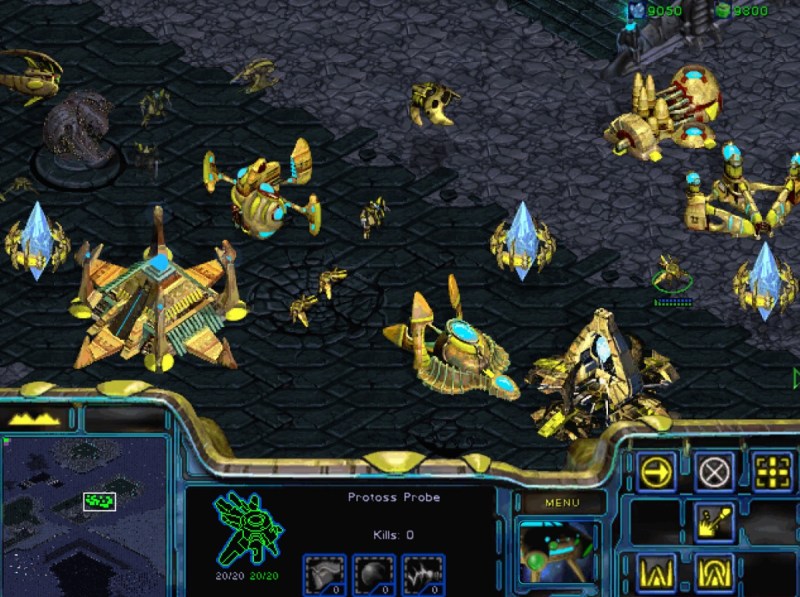
Above: Mira.
GamesBeat: Did you ever get a common kind of complaint at Blizzard?
Pardo: I don’t know if there was a common complaint, but I can give you a specific example. When we were making World of Warcraft and building the dungeon content, we made the decision where we wanted dungeons to be something you could only accomplish with a group of five different players. That was definitely in a spot in between where some people wanted us to make a lot of raid content, which we weren’t doing yet. We would eventually get to it. And then, you had a fair number of players that were more casual. They wanted to experience the dungeons, but they didn’t want to be forced to group.
We had a very clear vision that we wanted this group-based content. The way we designed the classes and the experience of the bosses in the dungeons was really fun and unique. For us to make that solo-able content, it would undermine what was fun about it in the first place. We stuck true to our philosophy there, even though we had a bunch of people who told us they didn’t want to play in groups but still wanted to experience the story of the dungeons. That’s one example of where we took some heat, but that was the audience we were going for.
GamesBeat: It sounds like a hard topic to give general advice on. “Here’s how you design a game. Here’s how you listen to customers.”
June 5th: The AI Audit in NYC
Join us next week in NYC to engage with top executive leaders, delving into strategies for auditing AI models to ensure fairness, optimal performance, and ethical compliance across diverse organizations. Secure your attendance for this exclusive invite-only event.
Pardo: The biggest thing about listening to customers and players — you definitely have to listen to the feedback, and you should do your best to communicate your goals and what you’re trying to do, so the player base has a better understanding of your vision and how you’re approaching it. But it’s always going to be challenging. Players range across a spectrum. All you can do is try to be as player focused as possible.

Above: StarCraft Remastered.
GamesBeat: Have you come across other companies that actively promote the opposite of what you’re thinking? “Get it right the first time,” something like that?
Pardo: I don’t know if there’s an opposite. I do think there’s a fair amount of companies out there that may be more deadline driven than they are iteration driven. I don’t want to say “quality driven” because I think every company wants quality. But you have that triangle of, do you want to focus on quality? Do you want to focus on timeliness? Do you want to focus on budget? You can’t really do all three at once. You have to choose one, or maybe you can choose two. But you can’t choose all three.
I do think there are companies that might be more budget and deadline driven, and that makes it hard for you to focus on quality. It doesn’t mean it’s a bad strategy, depending on what your goals are.
GamesBeat: Do you think that this works [for] all kinds of games and game companies? Does it work for mobile-game design, which tends to have smaller teams these days? Or on the largest console game projects?
Pardo: I don’t know if I’m going to go out there and espouse an entire development process. The focus of the talk is more about a way to think about your job, a way to think about your teammates. But when you’re talking about the development process — obviously, I think games and movies or any sort of team-based creative process can focus on excellence. There are going to be differences from team to team and platform to platform, but I think you see excellent products across all of those.
GamesBeat: It seems like the competition is always pretty intense in any segment. You do want to be more focused on quality than the competition or else you wind up with just one game in a million — literally millions in mobile. If you take less time to make your games, odds are your quality isn’t going to reach the right level.
Pardo: If you can make a game at that highest percentage of quality — I don’t know, the top five percent of the market, top 10 percent — I feel like you’ll always stand out. Then competition and timeliness matters less. If you make one of those top games, that’s what people remember.
GamesBeat: Is there a certain type of person you think you need to have on your team to follow this type of philosophy?
Pardo: I don’t know if it’s a type of person. It’s more like alignment with the group. I think that’s what matters most. I think about the spectrum of game developers I’ve worked with. I’ve worked with people that are very different from one another. But the teams made great products because the team was really aligned and driven together. It’s the team alignment that matters more than trying to pick the perfect RPG character stats for any given developer.
At the end of the day, the best teams make the best games. It’s not up to any individual, including myself or any other person you might know by name. It really comes down to having an amazing team that works together, that drives toward a vision. That’s where you get the best products.
GamesBeat: Do you have a takeaway or a conclusion you have planned for the talk?
Pardo: I think it’s to do what you love with people who share a vision. Early in people’s careers, maybe they’re focused on other things, but where I’m at in my career, the way I think about things is I want to work on things I really love and believe in with people that I love coming to work with every day. That’s probably — if you do those things well, then you’ll end up in a pretty cool destination at the end of it.

